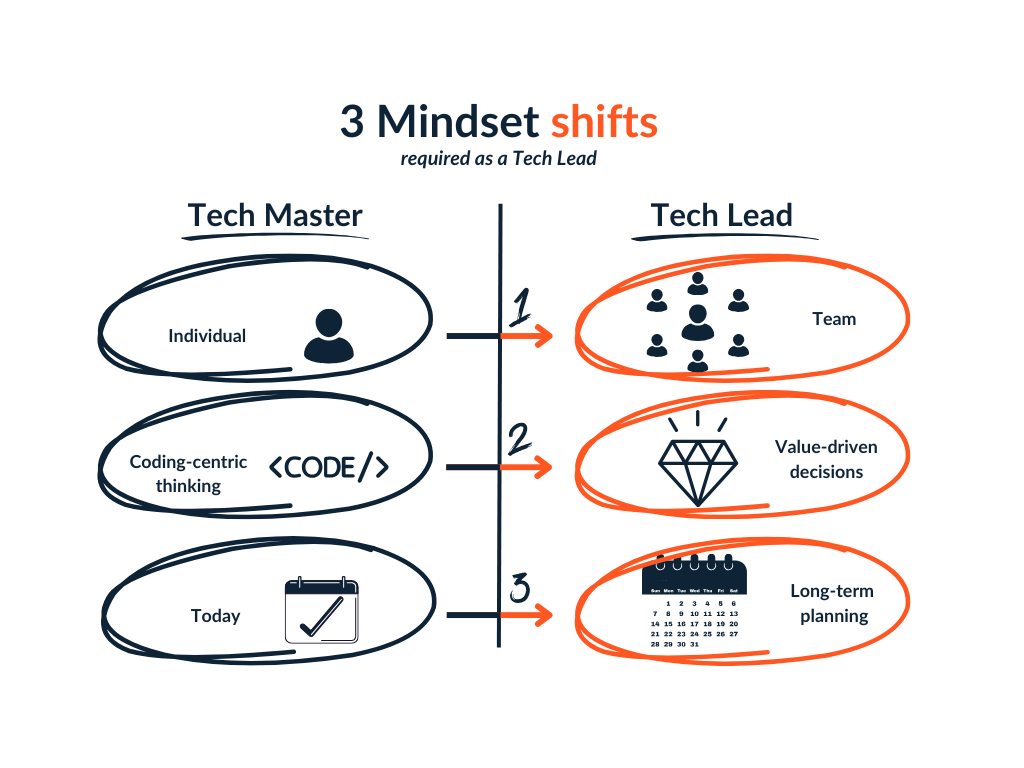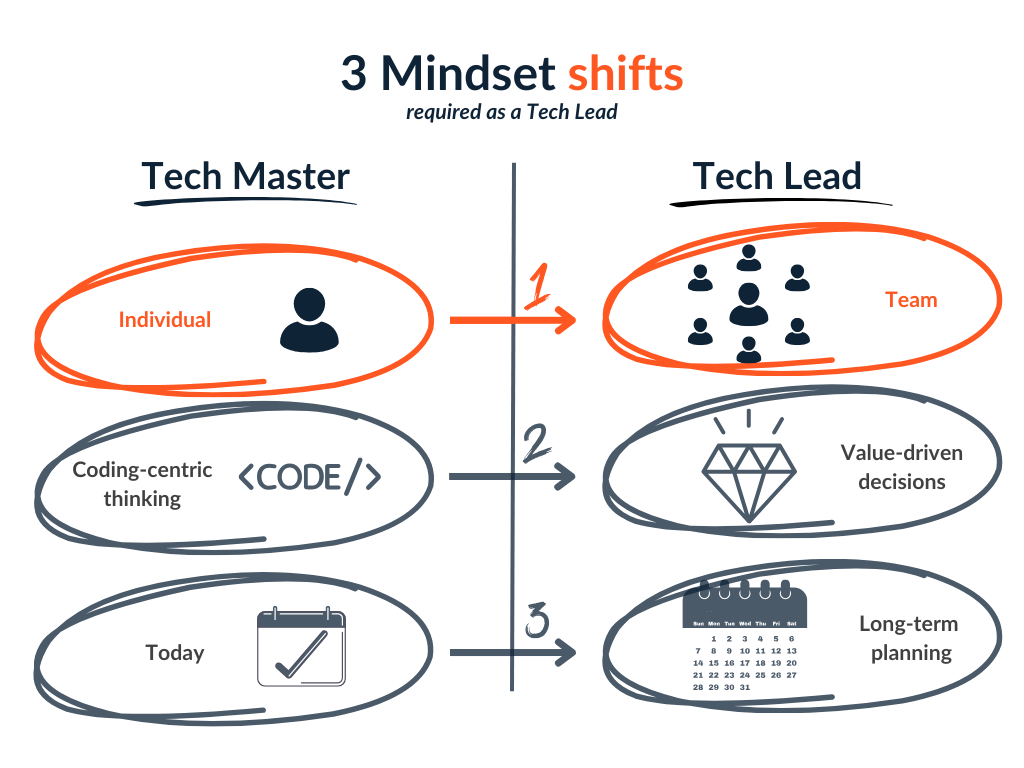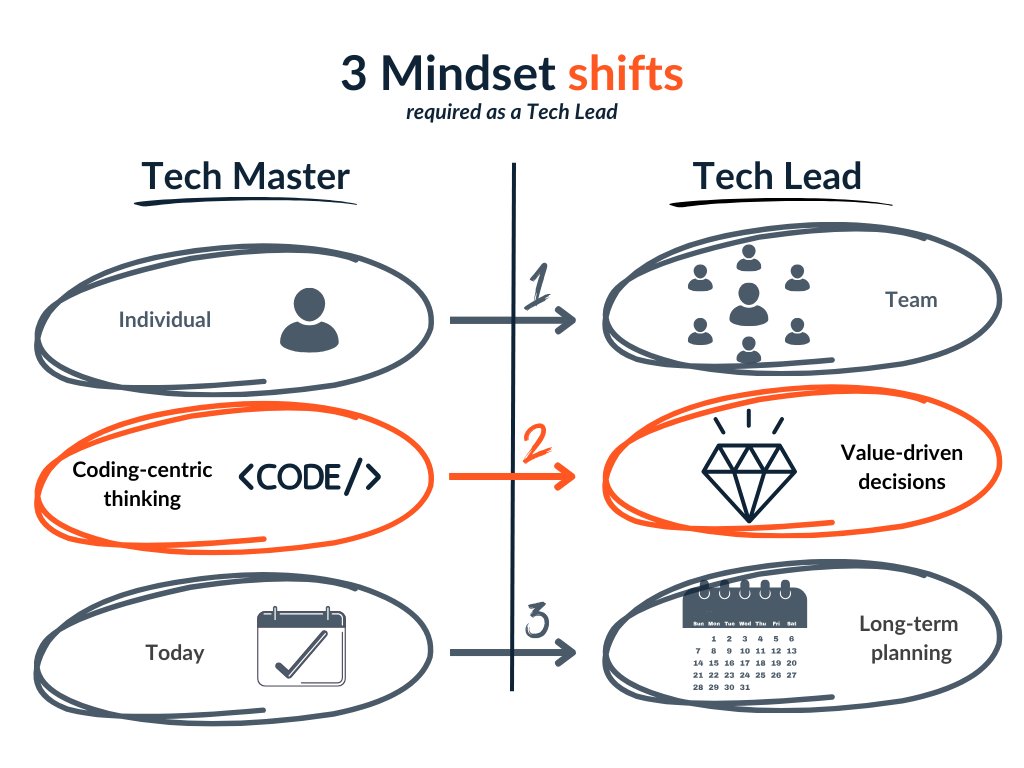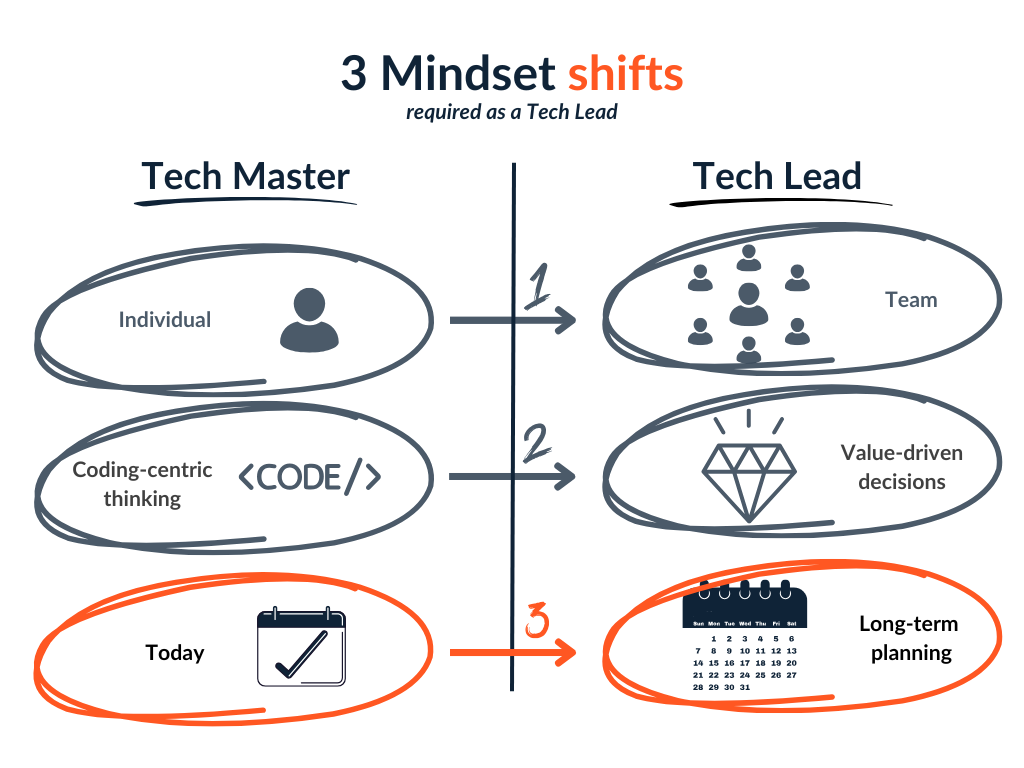From Tech Master to Tech Lead: 3 mindset shifts you need
Become the tech lead your team needs by shifting how you think and work.
Intro
Technical experts often struggle to lead.
The reason is simple: you get better at what you focus on.
They became great at tech because they focused on it.
Developing leadership skills, however, requires stepping out of that comfort zone and shifting their focus to people.
The transition is uncomfortable, and when the pressure rises, they tend to fall back on old habits:
They default to solving problems themselves. When a technical challenge appears, their instinct is to jump in and start coding rather than stepping back to empower the team to solve it. This limits the team’s growth and overburdens the leader.
They slip into talking technical instead of focusing on business outcomes. It’s the language they’re used to, and they expect people around them to “just get it.” They either share too little context or go too deep into technical details, leaving people lost and disconnected.
And, of course, they try to do everything themselves. Used to having full control and knowing every piece of the puzzle, they expect people to behave as predictably as code. Joke’s on them because people are not. Too many variables 😅
Breaking free from these habits isn’t easy, it takes deliberate effort and a willingness to grow beyond your technical comfort zone. Leadership is a different kind of problem to solve, one that requires new tools and new thinking.
The good news is that it’s entirely within your reach. To succeed as a leader, you must reframe how you think and work. It all starts with three key mindset shifts:
1. Individual → Team
The first shift, moving from an individual contributor mindset to a team focus, is the foundation of this transformation.
As an individual contributor, your success was tied to how fast and well you completed your own tasks. But as a tech lead, none of that matters if your team is struggling.
The shift means understanding that:
The number of tasks you complete doesn’t matter if your team isn’t delivering at the same pace.
Finishing your tasks quickly doesn’t help if your team is slow to deliver.
Your self-assessment of doing a great job as a tech lead is meaningless if your team disagrees.
Personal results don’t count if your team isn’t achieving success.
How well you work on your own does not matter if you can’t collaborate with your team.
Talented team members alone aren’t enough if they can’t collaborate effectively.
Your success as a tech lead is no longer about you; it’s about the team. Your focus must shift to ensuring the whole team moves forward and succeeds together. If you can embrace that, you’ll unlock a whole new level of leadership.
2. Coding-centric thinking → Value-driven decisions
Equally important is letting go of the belief that your value lies in the code you write. It doesn’t.
As a tech lead, your job is to ensure your team delivers value, not just more code. Sometimes that means prioritizing what works over what’s cool or new. It means aligning strategies, clarifying assumptions, and gaining buy-in from your team before anyone touches a keyboard.
It also means revisiting how you think about meetings. Instead of dismissing them as a waste of time, challenge their purpose and help make them more effective. If done right, they can become powerful tools for alignment and decision-making, reducing confusion and increasing momentum.
3. Today → Long-term thinking
The third shift is perhaps the hardest: balancing today’s tasks with tomorrow’s outcomes.
The decisions you make today will affect your team tomorrow so you need to understand to balance immediate tasks with the long-term health of the project. Decisions made for short-term gains should not come at the expense of long-term maintainability or technical debt.
Empowering others becomes a core principle. Instead of defaulting to “I’ll handle this,” shift to “How can I enable someone else to take ownership of this task?” as the first approach it’s not scalable anymore.
Conclusion
As a tech lead you are as successful as your team.
These mindset shifts aren’t easy, and they won’t happen overnight. They require one crucial step: letting go of control.
As an individual contributor, your tasks moved from To Do to Done with minimal interference. It was simple, clean, and predictable. But as a tech lead, you’re managing multiple team members’ progress and juggling problems that might not even be visible on the board. Trying to micromanage everything is a guaranteed ticket to burnout (been there, done that 😅).
So learn to trust your team, step back when needed, and rely on your team members - because you can’t succeed without them. 😉
Until next time,






